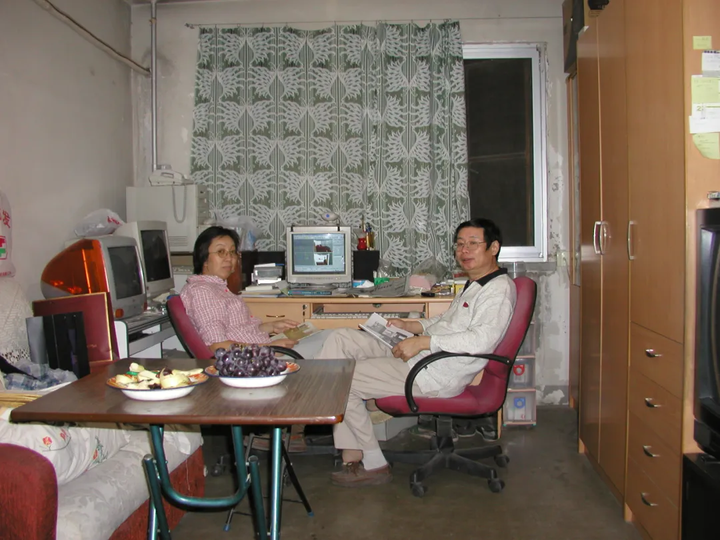Choosing Home: Why Some Chinese Expats Are Returning to China to Give Birth

Staff Writer: Yiyi Xie
Image Source: Supplied
For years, the idea of giving birth abroad was appealing to many Chinese parents, offering their children the chance to hold a passport from a developed country. However, some Chinese expats are now choosing the opposite path—returning to China to give birth and giving their baby Chinese citizenship.
Today, we spoke with Lucy, a Chinese mother-to-be living in New Zealand, who shared her journey of returning to China to give birth.
From Uncertainty to a Confident Decision
Lucy moved to New Zealand in 2017 for graduate school, eventually settling down with a job and gaining permanent residency. Earlier this year, she found out she was pregnant.

Living in Auckland, Lucy had the option of having her baby in New Zealand, where her child would automatically become a New Zealand citizen. She and her husband considered giving birth in China but were initially undecided since they had stable jobs and lives in New Zealand.
Everything changed when they learned they were expecting twins. The couple decided to resign from their jobs and move back to Lucy's hometown of Changchun, China, when she was 15 weeks pregnant.
“When I told my Chinese friends I was going back to China to give birth, many of them were skeptical and didn’t understand,” Lucy shared. But despite the doubts, the couple boarded a plane in May, ready to begin a new chapter.

While this may seem like an unconventional choice, for Lucy and her husband, it was a carefully considered and wise decision.
Feeling More Secure Giving Birth in China
The primary reason Lucy chose to return to China was the sense of security. While prenatal care in New Zealand was professional and reliable, Lucy was more comfortable knowing that Chinese doctors had more experience with twin pregnancies, which can carry higher risks.
Another factor was the language barrier. “I imagined being in pain in a hospital and struggling to understand medical instructions in English… it’s terrifying just thinking about it,” she said.
Postpartum care was also a concern. With two newborns on the way, Lucy and her husband felt they would need more help than they could afford in New Zealand. Hiring a postnatal caregiver in New Zealand costs around NZD 15,000 a month, and with twins, one caregiver might not be enough.

In China, they could rely on family and friends for support, and finding a nanny was much easier and more affordable. Lucy also wanted to experience a Chinese postnatal care center, where a professional team would help care for her and the babies during the critical recovery period.

Lastly, Lucy valued the opportunity to spend time with her family in China. After years apart due to the pandemic, returning home allowed her to reconnect with loved ones and enjoy the warmth of being close to her parents.
“It’s actually easier for us to go back to China than for them to come to New Zealand to visit us,” Lucy explained. Before leaving, she had already qualified for New Zealand’s maternity leave subsidy, which gave her peace of mind while awaiting the birth in China.
A Chinese Passport with New Zealand Residency
One of the most frequently asked questions was about her babies' nationality.
“For my husband and me, it didn’t matter whether the babies held New Zealand or Chinese citizenship. We plan for them to grow up in New Zealand,” Lucy explained. “But my parents preferred they be Chinese citizens, and giving birth in China fulfilled their wish.”
So, what’s next for the family? Lucy plans to return to New Zealand with the twins before they turn two. She will apply for a tourist visa for the children, followed by residency, and eventually, they will be eligible for permanent residency.
Although giving birth in New Zealand might have been more straightforward, the benefits of returning to China outweighed the initial complications. The children will have the best of both worlds—Chinese citizenship and New Zealand permanent residency.
“When they grow up, they can choose whether to live in New Zealand or pursue opportunities in China,” Lucy shared. Her experience resonated with others on social media, as many parents-to-be are exploring similar paths to give their children more options for the future.
Comparing Hospital Experiences in New Zealand and China
Lucy also shared her experiences with the healthcare systems in both countries. Upon her return to China, she had her first comprehensive check-up at a public hospital, which she described as far more thorough than her experiences in New Zealand.
In China, her prenatal visit included a range of tests beyond the basics, such as a five-dimensional ultrasound, virus screenings, and thyroid function tests, all recommended by doctors after reviewing her New Zealand medical reports.

“While New Zealand still relies on 3D ultrasounds, China has moved to 5D,” Lucy noted. In New Zealand, her appointments felt more rushed, with a strict 30-minute limit per patient, especially during her Down syndrome screening.
In contrast, Chinese doctors were more patient, taking extra time if the baby’s position wasn’t ideal. They would even ask her to take a walk and come back to ensure the screening was thorough.
Moreover, the convenience of China’s digital healthcare services impressed Lucy. Appointments, test results, and even payments could all be managed through the apps, making the process seamless.

Despite paying out of pocket in China due to her lack of insurance, Lucy still found healthcare more affordable than in New Zealand.
However, the downside to China’s public hospitals was the long wait times. After several hours of queuing during her first visit, Lucy decided to switch to a private hospital for future appointments, prioritizing better service and efficiency.
As Lucy reflects on her decision, she’s grateful for the comfort and support of being back home during such an important life point.
“Returning to my hometown during this pivotal moment in life, surrounded by family and love—it’s worth it,” she said.



